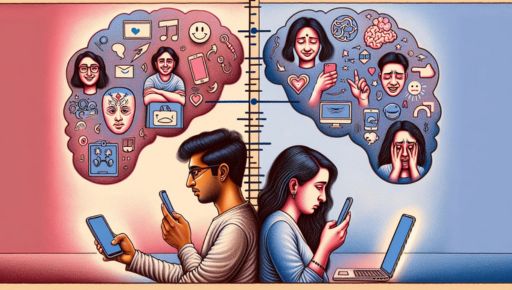
Social media has woven itself into the fabric of daily life. It connects people, spreads news, and even shapes opinions. Yet, it can also affect mental health in profound ways. We have seen the link between online activity and emotional well-being. When discussing mental health issues like ‘los angeles depression,’ social media often comes up. It can play a role in both the development and management of these issues. Let’s explore how social media impacts mental health and what can be done to navigate it wisely.
The Double-Edged Sword of Connectivity
Social media offers a platform for connection. It bridges distances and allows for the sharing of experiences. However, it can also lead to feelings of isolation. Constant comparison with others can trigger self-doubt and anxiety. These feelings are not unique to any one demographic. They affect people across different age groups and backgrounds.
Understanding this dual nature is crucial. On one hand, social media can provide support networks. On the other, it can heighten feelings of inadequacy. It is about finding a balance between the two.
Impact on Teenagers
Teenagers are particularly vulnerable to social media’s effects. Their brains are still developing, making them more sensitive to perceived social standing. Constant exposure to curated images can distort reality. This can result in issues such as low self-esteem and depression.
A study conducted by the National Institutes of Health found that excessive use of social media can lead to increased risks of mental health issues in teens. Parents and caregivers should pay attention to this. Encouraging healthy online habits is vital during these formative years.
Data Table: Social Media and Mental Health Statistics
| Age Group | Average Daily Social Media Use (Hours) | Reported Mental Health Impact |
| 13-18 | 3 | High |
| 19-30 | 2.5 | Moderate |
| 31-50 | 1.5 | Low |
Adults and Social Media
Adults are not immune to social media’s effects. While they may have more coping mechanisms, they still face challenges. Social media can lead to stress, anxiety, and even depression. The constant barrage of information can be overwhelming. It is essential to take breaks and disconnect when needed.
Creating boundaries is important for mental health. Limiting screen time and focusing on in-person interactions can help. This approach reduces reliance on virtual validation and enhances real-world connections.
Strategies for Healthy Social Media Use
To reduce negative impacts, consider these strategies:
- Set time limits for social media use.
- Curate your feed to include positive and inspiring content.
- Engage in offline activities to balance online time.
Education is crucial. Teaching young people about the realities of social media can empower them. It helps them navigate their digital lives with more awareness and resilience.
Supporting Mental Health Through Education
Efforts to improve mental health should include education. Understanding the effects of social media can lead to healthier habits. Schools and communities should take an active role in this. Workshops and programs can raise awareness about the impact of social media on mental health.
The Centers for Disease Control and Prevention provides resources on mental health and social media use. Leveraging such information can make a difference in how people interact with social platforms.
Conclusion
Social media is a powerful tool. It has the potential to both connect and isolate. Being aware of these effects is key to using it responsibly. By understanding its impact on mental health, we can make informed choices. Encouraging healthy habits and fostering open discussions can lead to more positive experiences online. Let’s strive for a balanced relationship with social media that enriches, rather than detracts from, our mental well-being.














